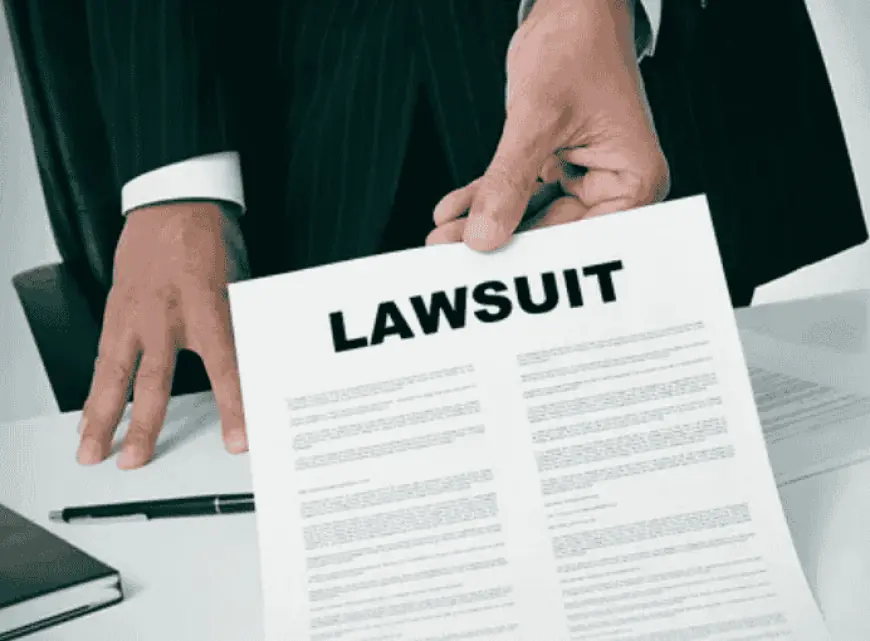What’s the #1 Reason Small Businesses Get Sued? (And How to Avoid It)

Running a small business comes with many challenges, and one of the biggest risks is the threat of lawsuits. Legal disputes can drain your finances, damage your reputation, and even force you to shut down. But what’s the most common reason small businesses get sued—and how can you protect yourself?
In this guide, we’ll reveal the top cause of lawsuits against small businesses, along with practical steps to minimize your risk. Whether you’re a startup or an established company, understanding these legal pitfalls can save you time, money, and stress.
The #1 Reason Small Businesses Face Lawsuits
Employment-related disputes are the leading cause of lawsuits against small businesses. These can include:
-
Wrongful termination
-
Discrimination (race, gender, age, disability, etc.)
-
Harassment (sexual or otherwise)
-
Wage and hour violations (unpaid overtime, misclassification)
-
Retaliation against whistleblowers
According to research, small businesses are even more vulnerable than large corporations because they often lack dedicated HR departments or legal teams. A single employee complaint can escalate into a costly lawsuit if not handled properly.
Why Employment Lawsuits Are So Common
-
Complex Labor Laws – Federal, state, and local employment laws are constantly changing, making compliance difficult.
-
Lack of Documentation – Many small businesses fail to keep proper records of employee performance, complaints, or disciplinary actions.
-
Misclassification of Workers – Incorrectly labeling employees as independent contractors can lead to legal trouble.
-
Poor Hiring/Firing Practices – Firing an employee without proper cause or documentation can trigger wrongful termination claims.
Other Common Reasons Small Businesses Get Sued
While employment issues top the list, other frequent legal threats include:
1. Contract Disputes
-
Breach of contract (failing to deliver services or payments)
-
Poorly written agreements with vague terms
-
Verbal agreements that lead to misunderstandings
2. Customer or Client Lawsuits
-
Slip-and-fall accidents on your premises
-
Product liability claims (defective goods causing harm)
-
Professional negligence (errors in services provided)
3. Intellectual Property Infringement
-
Using copyrighted images, logos, or content without permission
-
Trademark violations (unintentionally copying another brand’s name or design)
4. Debt Collection Issues
-
Aggressive or illegal debt collection practices
-
Failure to pay vendors or contractors
How to Protect Your Small Business from Lawsuits
1. Follow Employment Best Practices
-
Document everything – Keep records of employee performance, warnings, and terminations.
-
Train managers – Ensure supervisors understand anti-discrimination and harassment laws.
-
Classify workers correctly – Consult an attorney or HR expert to avoid misclassifying employees.
-
Have clear policies – Create an employee handbook outlining workplace rules and procedures.
2. Use Solid Contracts
-
Always put agreements in writing—never rely on verbal promises.
-
Have a lawyer review contracts before signing.
-
Include dispute resolution clauses (mediation/arbitration).
3. Get the Right Insurance
-
General Liability Insurance – Covers slip-and-fall claims and property damage.
-
Professional Liability Insurance – Protects against negligence claims.
-
Employment Practices Liability Insurance (EPLI) – Covers employee-related lawsuits.
4. Maintain Safe Premises & Products
-
Regularly inspect your business for hazards.
-
Follow industry safety standards.
-
Issue recalls or warnings if a product defect is discovered.
5. Respect Intellectual Property
-
Conduct trademark searches before naming your business.
-
Use licensed or original images/content.
-
Avoid copying competitors’ branding.
6. Handle Debt & Payments Professionally
-
Pay invoices on time to avoid breach-of-contract claims.
-
Follow fair debt collection laws if pursuing unpaid bills.
What to Do If Your Business Gets Sued
Even with precautions, lawsuits can still happen. If you’re served with legal papers:
-
Don’t Ignore It – Failing to respond can result in a default judgment.
-
Contact a Lawyer – Seek legal counsel immediately.
-
Gather Evidence – Collect contracts, emails, and any relevant documents.
-
Notify Your Insurer – Some policies cover legal defense costs.
Final Thoughts
Employment-related issues are the biggest legal threat to small businesses, but other risks like contract disputes, customer injuries, and intellectual property violations can also lead to costly lawsuits. By implementing strong policies, proper documentation, and the right insurance coverage, you can significantly reduce your risk.
Protecting your business legally isn’t just about avoiding lawsuits—it’s about creating a stable foundation for long-term success. Stay proactive, seek professional advice when needed, and prioritize compliance to keep your business safe.
For expert guidance on safeguarding your small business, trust FZDD to help you navigate legal risks with confidence.
What's Your Reaction?
 Like
0
Like
0
 Dislike
0
Dislike
0
 Love
0
Love
0
 Funny
0
Funny
0
 Angry
0
Angry
0
 Sad
0
Sad
0
 Wow
0
Wow
0

















































